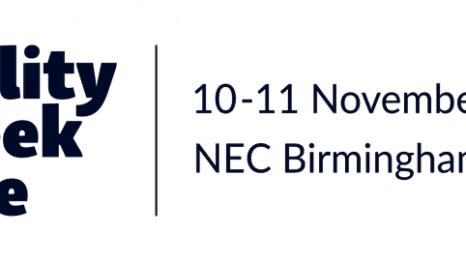Social media could create a brighter future for networks
Tools like Twitter and Facebook are not just new-fangled communications channels, says Freddie Tilbrook. They are an important element in the growth of collective consumer power - which will increasingly impact on network operations.
8th July 2016 by Networks

At this month’s Utility Week Energy Summit we heard the CEO of Centrica Ian Conn speak about power shifting back to the customer and a more devolved energy system. But what does that mean for an energy network? Furthermore, how could that be a benefit to energy networks?
Our view at The Energy Loop is that Social Media – and online platforms generally – have a vital role to play in ensuring that networks stay focussed on satisfying the changing needs of customers.
Today customers are disenchanted with the energy industry and apathetic at best, which presents a problem for those keen to drive the UK’s energy mix towards a more sustainable future. We’re presented with two choices.
- Change the way people’s homes are heated and powered and force change upon them
- Educate customers and give them their own choice.
No-one likes enforced change, so at some point we surely have to engage the bill payer in the debate, and social networks are a good way to achieve a broad outreach.
You’d be right in approaching this with caution, after all customer complaints have increased eight-fold since January 2014. That said – there are numerous social media success stories of recent times.
One close to us is Smart Energy GB, the consumer engagement campaign for the national smart meter rollout, which is making good progress. The campaign launched on social media last year and now has a Facebook following of over 11,500 and videos regularly surpassing 1m views. Its social media content aims to educate followers on the benefits of smart meters, while engaging them with games and competitions, and inspiring them with energy saving information from around the internet.
Beyond engaging with individuals, social networks are also beginning to have a bigger role in building a sense of community, cementing neighbourhood co-operation and even demonstrating health benefits . This is what we at The Energy Loop like to call collective power.
Collective Power is about using online and offline channels to engage communities, educating them on the best ways to power their homes and helping them take positive action.
The result for networks and government is a clear view of how communities want to engage with energy, what solutions are viable and how to develop a sustainable market without the need for government incentives. This helps us make more sustainable choices about how to heat and power communities into the future, whilst hitting those important carbon reduction targets.
Creating online social networks around energy also helps nurture skills and educate a broader audience in their local energy mix.
So while social networks are full of people looking to make their voice heard and this can be seen as negative by some, there is a huge opportunity for networks to engage with customers and help them achieve the better energy future they want, together. The earlier we all jump on board, the more we can learn and the faster we will be able to achieve a more sustainable energy mix for the future.
Comments
Login on register to comment
Related content

Power
Utility Week Live 2020

Innovation, technology & operations
Building a net-zero network for north Scotland
As owner of the electricity transmission network in the north of Scotland, SSEN Transmission has a critical role to play in the transition to net zero - by building the transmission infrastructure required to connect renewable electricity generation, and transporting that clean electricity to areas of demand, writes Bless Kuri, head of transmission system planning and investment.

Gas
2020 vision: Siemens’ outlook on the next 12 months
Will 2020 be a turning point on the road to net-zero? Energy systems specialist Siemens, headed by GB chief executive Carl Ennis, looks ahead to advances in generation, off-grid networks, electric vehicle uptake and corporate transparency.